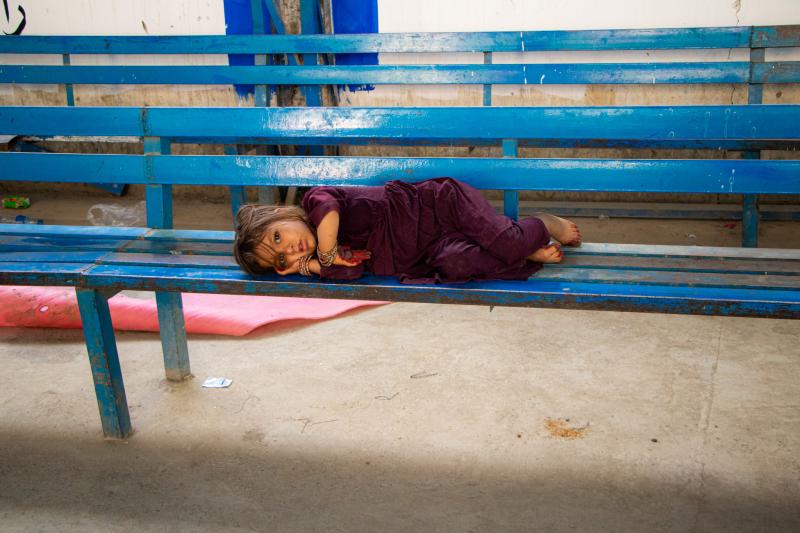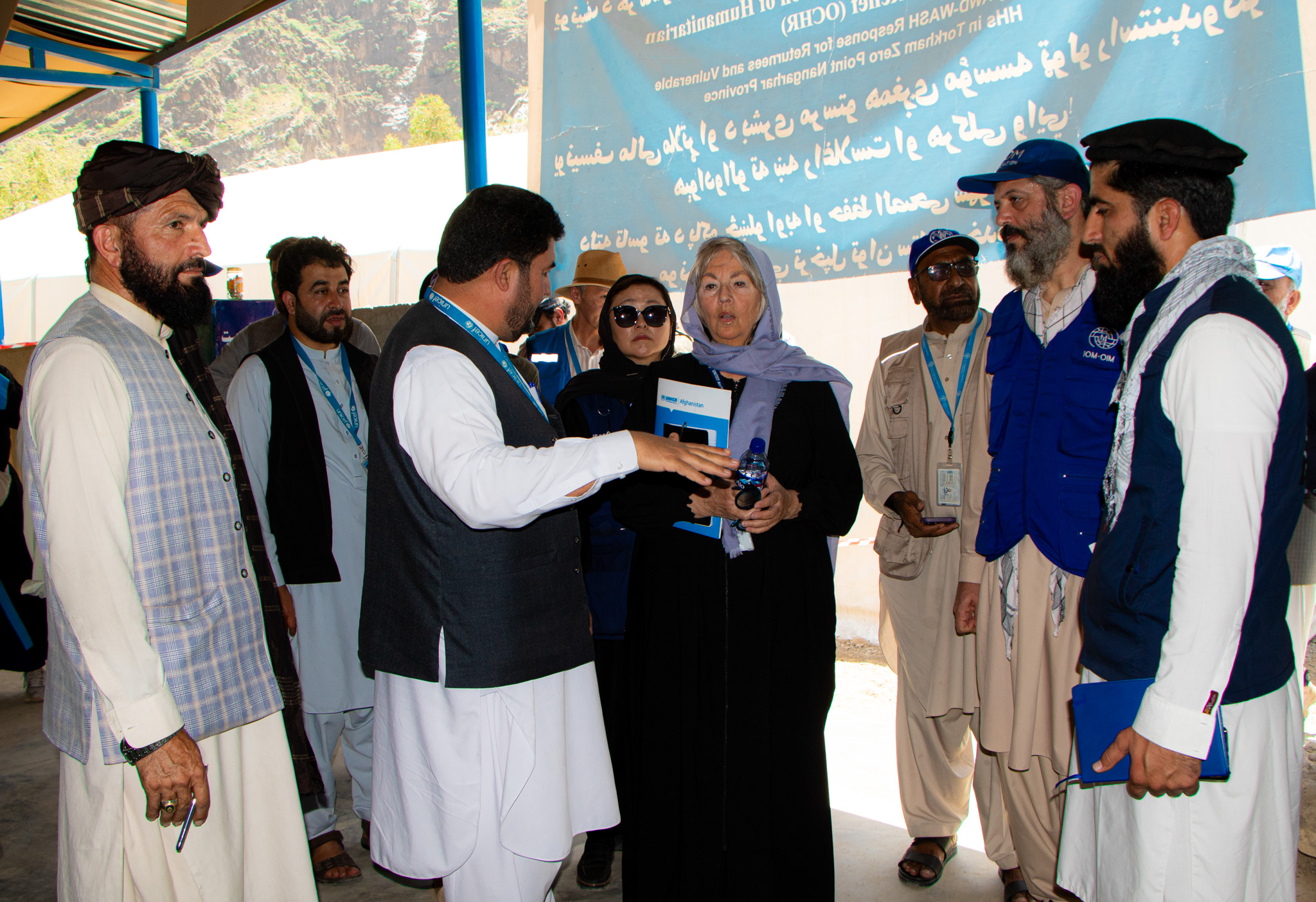

By Hiroko Massey, Fund Manager, STFA
We arrived at the Torkham border around 11 a.m. The sun was high, and the heat was already pressing down. Dozens of families stood just beyond the border gates - tired, silent, and carrying what little they had.
I saw men balancing mattresses on their heads, children dragging broken suitcases and babies crying while clinging to their mothers, some of them even walking barefoot on the hot ground.
It didn’t seem like it was a joyful return for them. It was driven by necessity – forced, abrupt, difficult, and filled with uncertainty. I remember my colleague translating what one of the young women said, “I was born in Pakistan. I don’t know anything about this place. But now I have to start over here?”
What I witnessed that day was how different partners were working together to support the returnees, providing immediate support, working under pressure, and full of purpose.
At the zero point and reception centers in Torkham, different UN agencies stood side by side. Some managing first contact and registration. Others identifying vulnerable individuals. Others helping with emergency food support and others coordinating basic health services.

Every person received something – to ease the shock of return: some biscuits for glucose, a small cash grant, a hygiene kit, a bottle of water, vaccinations, and some kind words. These are the first steps of the Humanitarian-Development-Peace (HDP) Nexus in action.
But the border is only the beginning. We travelled on to Jalalabad, and then deeper into the rural districts of Laghman Province, where we visited communities that STFA is supporting through area-based, multi-sectoral interventions.
There, I met families who had returned just days earlier, already settling into permanent shelters constructed through STFA funding. Others had started small income-generating activities: tailoring, poultry farming, or running greenhouses. Some had joined vocational training programs or had access to basic services like health care and water for the first time.
One man, newly settled into a shelter, told us: “We don’t have furniture yet. But we have a roof and a door that locks. We can sleep in peace.”
Another, who used a grant to open a shop, said: “I don’t want to keep receiving aid. I want to earn and stand on my own.”
This is what the HDP Nexus delivers when it works well – support that begins with urgent needs and extends toward real solutions. They are not just recipients of aid; they are participants in rebuilding their lives.
I travelled with colleagues from SIDA, one of the key donor partners to the Special Trust Fund for Afghanistan (STFA). Together, we saw what it means to link humanitarian assistance with development and peacebuilding, not as a theory, but as a way of working that helps people move from displacement to stability, from dependency to self-reliance.

Since its inception in 2021, STFA has mobilized over US$250 million, channeling support to communities across five regions of Afghanistan. Our work focuses on basic human needs, economic recovery, and climate resilience. Implemented by 15 UN agencies in collaboration with national and international NGOs, our interventions prioritize returnees, internally displaced people, and the communities that host them.
Whether it's a cash grant, a classroom, a new roof, or a micro-business, the goal is the same: to help people restart their lives with dignity and security.
But we cannot do this alone. With more people returning and humanitarian funding declining, we must step up, not scale down. Every investment in Afghanistan today is an investment in a more stable, resilient, and peaceful tomorrow, for Afghans and for us all.